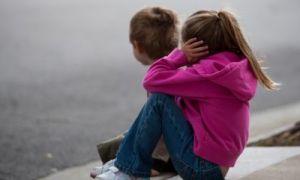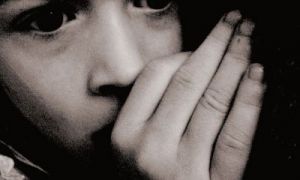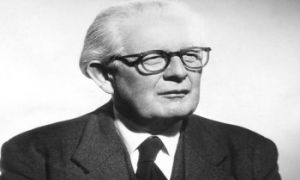

The following article provides information on Strategies For Getting Educators Engaged In Planned Activities, Create A Simple, Visual Planning Board, Encourage Educators To Co-Create The Program and more.
A Curiosity Approach environment fosters exploration, creativity, and sensory-rich experiences, making learning feel natural and engaging. Here are some additional ideas to enhance your nursery room setup.
Creating responsive play spaces means designing environments that adapt to children's interests, needs, and developmental stages. Here are some key strategies:
Incorporating Indigenous resources into playspaces helps create a culturally rich and inclusive environment that fosters respect, learning, and connection to First Nations traditions. Here are some ways to modify playspaces meaningfully to incorporate Aboriginal and Torres Strait Islander resources.
Here are some ideas on how to make your Yarning Circle more meaningful and to help reframe the sharing time while keeping the children engaged.
Mindful praise helps children develop intrinsic motivation and confidence by focusing on effort, creativity, and problem-solving rather than just the outcome. Here are some alternatives to saying "Good job!".
Rough-and-tumble play—often called play fighting—is a form of physical, high-energy play that helps children develop social, emotional, and physical skills. It includes activities like wrestling, chasing, tumbling, and playful grappling, but without aggression or intent to harm.
Negative framing and brain-building language shape how children perceive themselves, their abilities, and their learning experiences. The way educators communicate can either foster confidence and curiosity or create self-doubt and hesitation.
Educators are encouraged to shift away from asking "What are you making?" in early childhood settings because it can limit children's creativity and self-expression. Instead, open-ended questions that invite deeper thinking and exploration are recommended.
Self-care is essential for early childhood educators in Australia, as their work can be emotionally and physically demanding. Prioritizing well-being helps prevent burnout and enhances the quality of care provided to children. The following article provides information on Practical Self-Care Tips, Self-Care Activities, Self Care Routines, Self Care During Lunch Breaks, Self Care During Different Stress Levels and more.
 Toddlers have a greater understanding of the world around them by this stage. Their cognitive development (also known as intellectual development and thinking skills) continues… Read More
Toddlers have a greater understanding of the world around them by this stage. Their cognitive development (also known as intellectual development and thinking skills) continues… Read More
 Infants begin to develop trust when parents begin to fulfil their needs. Such as changing an infant's nappy when needed, feeding on request and holding… Read More
Infants begin to develop trust when parents begin to fulfil their needs. Such as changing an infant's nappy when needed, feeding on request and holding… Read More
 Beginning at birth the construction of thought processes, such as memory, problem solving, exploration of objects etc, is an important part of an infant’s cognitive… Read More
Beginning at birth the construction of thought processes, such as memory, problem solving, exploration of objects etc, is an important part of an infant’s cognitive… Read More
 Toddlers want to do more on their own and do not like it when you begin to establish limits on their behaviour. Tantrums can become… Read More
Toddlers want to do more on their own and do not like it when you begin to establish limits on their behaviour. Tantrums can become… Read More
 Your preschooler is now able to focus their attention more accurately and is less influenced by distractions. The intensity of questions increase as your child… Read More
Your preschooler is now able to focus their attention more accurately and is less influenced by distractions. The intensity of questions increase as your child… Read More
 John Dewey is often seen as the proponent of learning by doing – rather than learning by passively receiving. He believed that each child was active,… Read More
John Dewey is often seen as the proponent of learning by doing – rather than learning by passively receiving. He believed that each child was active,… Read More
 Toddler advance and gains new skills in Gross Motor Development milestones achieved throughout earlier years. Co-ordination and challenges that could not be performed before such… Read More
Toddler advance and gains new skills in Gross Motor Development milestones achieved throughout earlier years. Co-ordination and challenges that could not be performed before such… Read More
 Erik Erikson developed a psychosocial theory to understand how we each develop our identities through eight stages of psychosocial development from infancy to adulthood. The… Read More
Erik Erikson developed a psychosocial theory to understand how we each develop our identities through eight stages of psychosocial development from infancy to adulthood. The… Read More
 At this point preschoolers begin to interact effectively with others. Play becomes more innovative and organized and “boyfriend” or “girlfriend” begins to emerge. Preschoolers have… Read More
At this point preschoolers begin to interact effectively with others. Play becomes more innovative and organized and “boyfriend” or “girlfriend” begins to emerge. Preschoolers have… Read More
 From now, babies begin to identify and respond to their own feelings, understanding other's feelings & needs and interact positively with others. A baby's social and… Read More
From now, babies begin to identify and respond to their own feelings, understanding other's feelings & needs and interact positively with others. A baby's social and… Read More

Divorce a common problem for a lot of families in today's society. Each individual family...
See more...
When you were little were you ever afraid of the dark? Or small creepy insects?...
See more...
Piaget discovered that all children’s cognitive development progressed through four stages, beginning in infancy and...
See more...© 2009-2025 Aussie Childcare Network Pty Ltd. All Rights Reserved.

